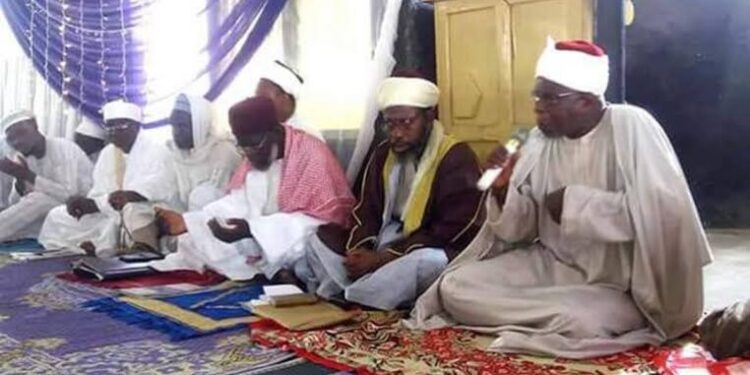Sheikh Kabiru Umar-Wasagu, a member of the Da’awah Committee of the Kebbi Pilgrims Welfare Board, says Islam always encourages Muslims to treat mankind well.
Mr Umar-Wasagu, the deputy imam of Central Mosque, Birnin Kebbi, stated this in Mecca on Sunday during the morning enlightenment programme for the pilgrims.
He described good conduct (husnul kulq) as one of Islam’s excellent qualities, hence the need for Muslims to promote it to the best of their ability.
The cleric charged them to avoid acts that go contrary to the teachings of Islam, identifying such acts to include telling lies, fornication, adultery and backbiting, among others.
Mr Umar-Wasagu recalled that Prophet Muhammad spent 10 years in Mecca calling on the people to avoid bad habits and encourage good attitudes. He said during this period, people differed in accepting the prophet’s message, saying, “People like Sayyidna Abubakar Siddiq accepted the prophet directly, and immediately, others accepted his message partially, while others rejected the faith completely.”
Taking his text from Sura Waqi’a (Qur’an Chapter 56) and A’araf (Qur’an Chapter 7), the cleric said God had classified people into three groups: those who would inherit the Kingdom of paradise, those who would go to hellfire, and those who would be in between.
“On the last day, there are some Muslims that will enter paradise directly without any hindrance, and there are some who will come as Muslims but commit different categories of sins; however, they will enter paradise. While the third category is those who contemplated their faith and, in essence, rejected the faith,” he explained. “A believer is the one called muqarab, meaning close to our creator and will enter paradise directly while there are those who will come with loads of sins.”
According to Mr Umar-Wasagu, Abubakar Siddiq, Umar bn Kathab, Usman bn Affan, and Aliyu bn Abu Talib were the four prominent companions of the prophet, alongside others.
The rest were like Dalha bn Ubaidullah and Mu’az bn Jabal, referred to as Al-Muqarrab and very close to God.
“The second category is those Muslims who commit sins, and these are divided into two: those who will enter paradise after struggle and those who will remain on the fence of A’araf. They neither enter paradise nor hellfire,” he said.
The cleric cited some disbelievers, such as Abu Jahal and Shaiba bn Rabi’a, who stood against the holy prophet’s message.
“However, Allah’s path is supreme. The message went beyond the Arabian Peninsula and spread all over the world,” Mr Umar-Wasagu said.
(NAN)






